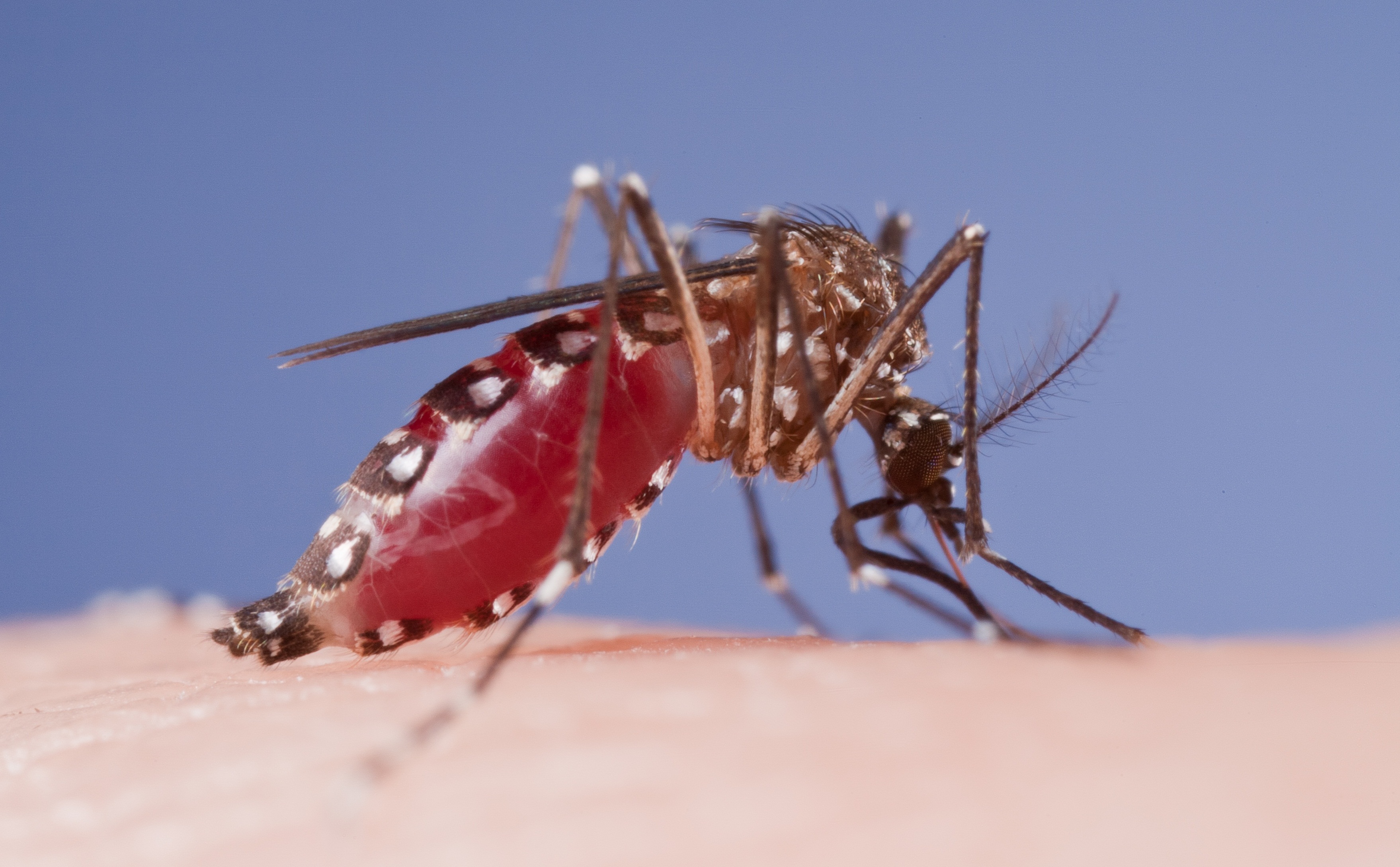Aedes mosquitoes are highly invasive and adaptive and can be recognised by the white stripes on their body and legs. Aedes mosquitoes can transmit several diseases such as Dengue, yellow fever and Chikungunya. Dengue is a virus that causes high fevers, joint pains, and in some cases internal bleeding which can be fatal. Dengue is endemic in more than 120 countries worldwide, mostly in Central and South America and Asia. Approximately 100 million people get infected on a yearly basis, of which an estimated 25.000 people die.
Two of the most important species are Aedes aegypti (yellow fever mosquito) and Aedes albopictus (Asian tiger mosquito). They bite during the day, and can thus not be stopped by bednets. Aedes mosquitoes breed in small (mostly man-made) water containers and their eggs can survive long periods of drought, which makes larval control very difficult. There is no commercial vaccine against dengue and there is no specific medication. Currently, the only options for dengue vector control are area-wide fogging of insecticides and larviciding. These methods are not exactly human- and environment-friendly and are already faltering due to increasing levels of insecticide resistance.
Countries / areas at risk of Dengue transmission, 2009


